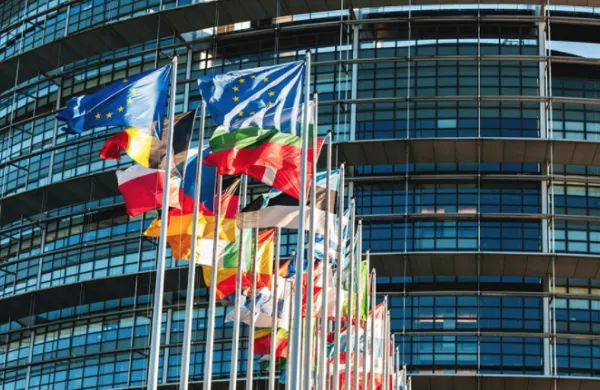Investors in the Eurozone are more optimistic than at any time since the financial crisis, according to Sentix data.
A Sentix poll measuring the mood of investors in Europe’s single currency area has risen on positive economic data from the region, as well as more optimistic attitudes toward Eurozone countries previously considered to be struggling, such as Greece and Italy, according to the latest monthly data released Tuesday.
Fund managers say the election of President Emmanuel Macron in France has delivered a renewed sense of optimism for European integration when coupled with better-than-anticipated economic data in the weaker parts of the Euro area.
“The economic news flow remains positive, as seen in the most recent unemployment numbers,” said Ahmed Behdenna, a multi-asset fund manager at Aviva Investors. “Political news flow has often weighed on market sentiment towards the Eurozone,” but that’s also improving, he said.
The Sentix research was conducted among 953 investors globally, 261 of which were institutional investors. They’re asked each month to give their views of the economy based on an “economic clock” that sets zero as neutral. High negative numbers indicate an increased likelihood of a recession, while high positive numbers mean an economic boom is likely.
The average score from institutional investors rating the Eurozone economy was 40.5 this month, up from 39.5 in May and 19.5 in January. While the score from individual investors was lower, registering at 31.5, their optimism this year has similarly risen.
Nicholas Wall, portfolio manager at Old Mutual Global Investors, said those investing in Europe are ultimately making a call on European politics, and the market may have priced in too much European political risk at the start of the year.
“European solidarity appears higher than it has been at any time since the Brexit vote,” he said. “To some degree, Brexit has united European politicians. This is helped enormously by the positive-growth environment seen in most European countries as political discontent tends to fade as unemployment drops and wages improve.”
Despite the positivity, some contrarian investors believe that volatility is likely in the immediate future, as the beginning of the Brexit negotiations, the German election and the Italian election are all on the horizon.
Trevor Greetham, head of multi asset at Royal London Asset Management, said the U.K.’s decision to leave the European Union is unlikely to “cause a global recession,” but he does believe it will have an impact on European investor sentiment.
“I think we will see swings in sentiment from Brexit, which could be a reason for some wobbles this summer,” Greetham said. ”If you have a Tory majority, [U.K. Brexit Secretary] David Davis is pretty much saying that his first action in a negotiation is to walk away.”
Adam Laird, head of ETF strategy for Northern Europe at Lyxor, agreed that there’s reason to be cautious about optimistic survey results.
“We have heard more investors looking at choosing their countries rather than going for broad markets in Europe,” he said.







